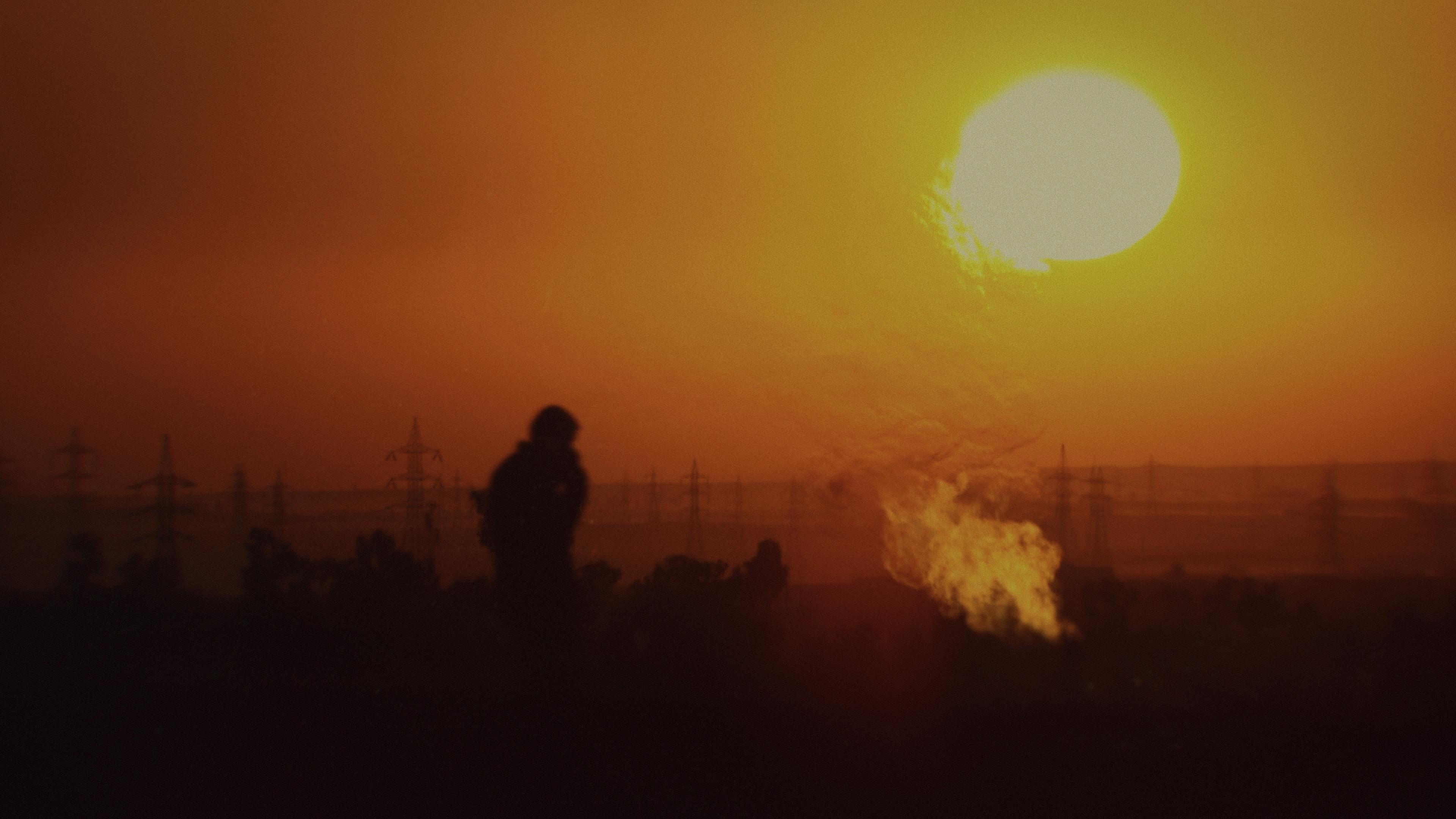Apple TV Plus docuseries The Line examines the impossible contradictions of military service
The controversial case of Navy SEAL Eddie Gallagher is explored in this four-part documentary, produced by Alex Gibney’s Jigsaw Pictures


Herman Wouk’s 1951 novel, The Caine Mutiny, is one of the most honest and unsettling pieces of fiction ever written about military discipline and order. It tells the story of a clearly unfit naval officer—someone who is at best petty and indecisive and at worst cruel and dangerously incompetent—who may nonetheless have been wronged when his men relieved him of his command during a mission. It’s a challenging book (and later a play and movie), pushing the audience to consider what it takes to fight wars, and whether we should hold the people we entrust with national security to the same moral and behavioral standards we would hold, say, a supermarket manager.
At its best, the four-hour Apple TV+ docuseries The Line (and the podcast that preceded it) pushes some of those same buttons. The Line looks back at one of the controversial military war crimes cases of recent years—the trial of Eddie Gallagher, a Navy SEAL accused of murdering an Iraqi prisoner—and presents multiple points of view on what happened and why. On the whole, the series is overlong and repetitive, and is missing some clarifying voices. But directors Jeff Zimbalist and Doug Shultz and their team (including the prolific documentary producer Alex Gibney) have some startling footage shot by Gallagher’s squad. They also have interviews with most of the story’s principals, including Gallagher himself, who remains defiant in the face of any suggestion that he acted inappropriately.
For those who don’t remember the case (or have a hard time distinguishing it from the soup of scandals and outrages that bubbled up during the Trump administration), Gallagher was a Navy SEAL sniper and chief petty officer who led a team of SEALs during the Battle for Mosul in Iraq in 2017. During the deployment, several men in Gallagher’s platoon complained he was behaving erratically: boasting about killing civilians, stealing food from people’s care packages, and firing weapons indiscriminately into crowds.
They filed formal complaints, which they kept pushing up the chain of command after they returned home. In 2018, Gallagher was arrested on multiple charges—most prominently for murdering an injured and immobilized 17-year-old ISIS fighter named Khaled Jamal Abdullah and then posing for pictures with his corpse, texting to a friend that he “got him with my hunting knife.”
The case became highly politicized, with Fox News and other right-wing media outlets rallying behind Gallagher. This drew the attention of President Trump, who publicly pressed the Navy to free “one of the ultimate fighters.” The trial turned on a surprise confession from a medic who’d been granted immunity, and who claimed on the stand that he killed Abdullah by depriving him of oxygen, minutes before Gallagher stabbed the kid in the neck. Gallagher was convicted only for the photo, and punished with a demotion. Trump intervened, reversing the demotion and demanding a review board not strip Gallagher of his SEAL Trident Pin. Navy Secretary Richard V. Spencer was fired, for privately trying to persuade the president to let the process play out properly.
The Line tells this story very deliberately—and overly so. It opens with a long look at the training of a Navy SEAL, before getting into the experiences of the platoon in Mosul. The doc establishes the positives and negatives of assembling men recognized and groomed by the military for their skill, steeliness, and initiative—all disciplined warriors with a smidgen of piracy in their hearts. These special forces demand the most dangerous assignments, going into a mission looking to do damage. But in a drawn-out and constantly shifting engagement like the ones the United States has been involved with in Iraq, sometimes valuable resources like the SEALs are poorly utilized, like bringing a sledgehammer to do the job of a screwdriver.
So the series’ first episode plays almost like an apologia for these men—Gallagher included. Even Gallagher’s accusers describe the importance of eradicating ISIS, and talk about how tough it is for a collection of trained killers to perform the more subtle tasks of an occupying force. Describing what is commonly known as “the fog of war,” one of the SEALs says, “You see death on such a huge scale that the lines get blurry.” In The Caine Mutiny terms, this episode is like the mutineers themselves giving the shaming “you don’t respect the military enough” speeches leveled at them in the novel.
But then the second episode goes deeper into the accusations against Gallagher. He’s described as someone who made no distinction between ISIS soldiers and the civilians that the SEALs were meant to liberate. Some in the platoon say they got in the habit of scattering the Iraqi citizenry during combat before Gallagher could take aim at them. They say he was overly aggressive in ordering his men to attack, at times even using them to bait the enemy. They say he popped pills regularly and often pushed his underlings around, using physical and verbal assaults to correct minor misbehavior.
In his interviews, Gallagher denies everything; he seems more offended at the accusation that he stole snacks than anything having to do with him shooting at non-combatants. He insists his men didn’t like that he was so demanding, and so determined to get results. But the accusers—and the officers above them interviewed for this documentary—counter that the rules of combat are “not an opinion,” and that the only way the U.S. has any credibility in military endeavors is if they hold themselves to the highest moral standard.
Because Zimbalist and Shultz were able to get so many people to go on the record, and because the list of accusations against Gallagher is long, The Line can be a bit of a grind. It doesn’t help that Gallagher himself shows little interest in re-answering the same questions he faced in court. At times, this series is like having a bunch of old newspaper articles read aloud, with no new information.
An even bigger problem: Nearly all the people interviewed in The Line are the Navy SEALs who knew Gallagher. Their take on the case is well-informed, certainly, but they lack perspective on Iraq, the Iraqis, the Iraq War, and ISIS. In episode four, after the trial is over, there’s a long interview with Abdullah’s father, where he talks about how his son was recruited to fight against American interlopers he’d become convinced were the embodiment of evil. Abdullah’s origin story isn’t too different from many of the SEALs’. If the documentary had explored those similarities, it might’ve been more powerful.
Still, what’s here is frequently fascinating. This is a questioning look at the warrior mentality, pondering whether it’s possible to be the toughest of the tough while adhering to every regulation. And while too much of the series is made up just of visually simple on-camera interviews, they’re enhanced by videos and photos taken by the SEALs themselves, documenting their own culture and—sometimes—callousness. The Line likely won’t change anyone’s minds right now about Gallagher or his accusers. But it’s a valuable if incomplete record of a moment military historians and ordinary American citizens alike ought to keep reckoning with, and perhaps reassessing.